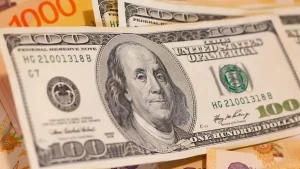The success of Mr. Trump’s presidency, said Nicholas W. Allard, a longtime Washington lawyer and lobbyist who is the dean of the Brooklyn Law School, could hinge in part on Mr. McGahn’s legal advice.
“The challenges facing McGahn are really unique in the history of that office,” Mr. Allard said.
Interviews with more than a dozen associates, as well as an examination of legal filings, portray Mr. McGahn, 48, as an advocate with an impressive command of arcane election law, but also a fiercely competitive and even intimidating man eager to scrap with opponents — to “duke it out,” as he once said — in pressing the argument that donations of political money are a form of free speech. His Democratic opponents, however, portray him as a master of finding legal technicalities to allow election abuses to go unpunished.
If his record is any guide, Mr. McGahn (pronounced Mc-GANN) will be a fierce proponent of the president’s executive authority to operate independently on a wide range of issues. One key question, however, is how strongly he will push back if Mr. Trump, a man who has defied many norms, seeks to cross into murky legal terrain, a number of associates said.
He may be called on to defend Mr. Trump’s stances on issues like his business empire, his children’s role in his administration, his moves to roll back President Obama’s executive orders, his vow to bring back waterboarding or his threat to impose tariffs on companies moving abroad.
His legal fingerprints can already be seen in a number of positions Mr. Trump has taken since the election. Associates said he was most likely the source, for instance, for Mr. Trump’s assertion in an interview with The New York Times that he could maintain control of his business if he chose to because “the law is totally on my side, meaning the president can’t have a conflict of interest.” Mr. Trump’s contention was apparently based on an exemption for presidents and vice presidents codified by Congress in 1989
One of Mr. McGahn’s first key tests in the White House will no doubt be his advice to Mr. Trump on whom to nominate for the current Supreme Court vacancy. During the campaign, Mr. McGahn helped lead the development of a list of 21 candidates Mr. Trump said he would consider for the court, according to people involved in the process who spoke on the condition of anonime
Mr. McGahn, who declined to be interviewed for this article, appears hungry to take on his new role after steering Mr. Trump past legal minefields during the campaign en route to his improbable victory, according to friends and colleagues.
He was feeling triumphant as he had lunch a few weeks ago at his blue-chip Washington law firm, Jones Day, with Benjamin Ginsberg, a colleague at the firm who was a mentor to Mr. McGahn when he was starting out in election law.
Mr. McGahn has little public record outside his specialty in campaign finance and election law, but colleagues predict that he will prove a quick study in the wide range of national security, domestic and regulatory issues before his office.
“Don is very smart, he’s very combative, and he’s very dogged,” said Robert Bauer, a former White House counsel under Mr. Obama.






Bun articulo